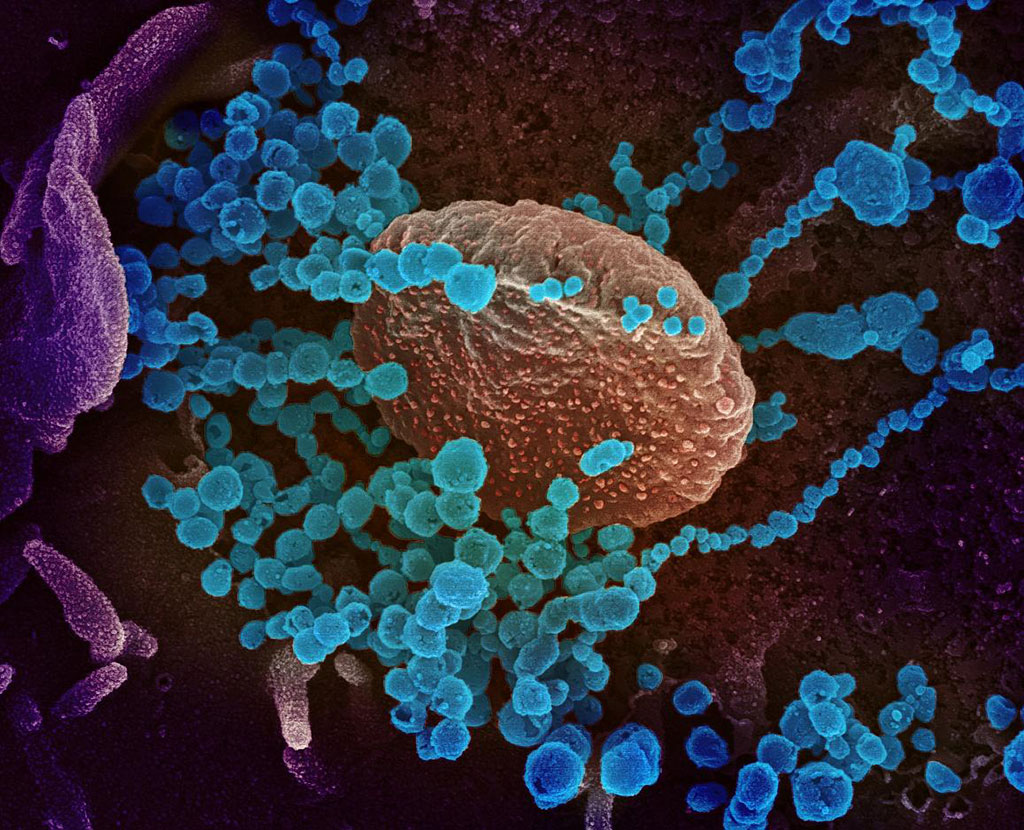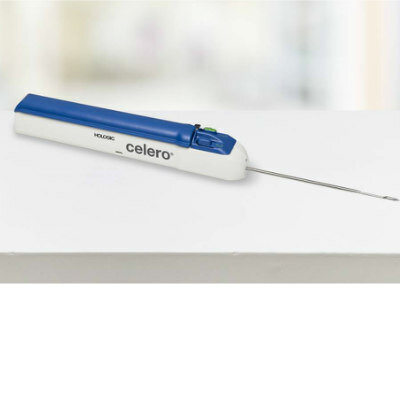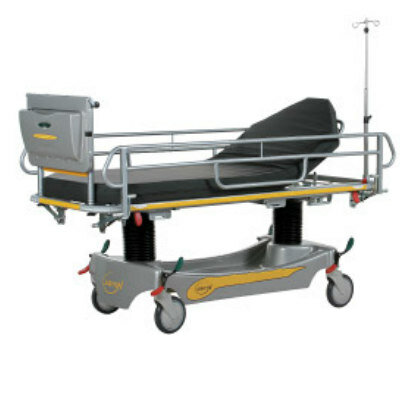Clinical Trial to Evaluate Drug Combination of Gilead’s Remdesivir and Eli Lilly’s Baricitinib for COVID-19 Treatment
|
By HospiMedica International staff writers Posted on 13 May 2020 |

Illustration
The National Institutes of Health {(NIH) Bethesda, MD, USA} has begun a randomized, controlled clinical trial evaluating the safety and efficacy of a treatment regimen of investigational antiviral remdesivir plus the anti-inflammatory drug baricitinib for COVID-19.
The trial is now enrolling hospitalized adults with COVID-19 in the US and is expected to open at approximately 100 US and international sites. The clinical trial is the next iteration of NIAID’s Adaptive COVID-19 Treatment Trial (ACTT), which began in late February to evaluate remdesivir, an investigational broad-spectrum antiviral treatment developed by Gilead Sciences’ (Foster City, CA, USA). In the trial, patients who received remdesivir had a statistically significant shorter time to recovery as compared to patients who received a placebo. In this next trial with baricitinib, called ACTT 2, all participants will receive remdesivir or remdesivir with baricitinib.
Baricitinib, a product licensed to Eli Lilly and Company (Indianapolis, Ind, USA) by Incyte and marketed under the brand name Olumiant, is approved in the US and in more than 65 additional countries as a treatment for adults with moderately to severely active rheumatoid arthritis. Some people with COVID-19 experience acute respiratory distress syndrome (ARDS), in which inflammation of the lungs leads to shortness of breath and rapid breathing. Baricitinib, taken orally, inhibits cytokine signaling in the body that plays a role in causing inflammatory responses.
In the double-blind study, remdesivir will be administered as one 200-milligram (mg) IV dose followed by a 100-mg once-daily IV dose for the duration of hospitalization up to a 10-day total course of treatment. Baricitinib will be administered as a 4-mg oral dose (or crushed and given through a nasogastric tube, if necessary) for the duration of hospitalization up to a 14-day total course of treatment. Investigators will evaluate whether time to recovery is shorter in the combination arm (baricitinib plus remdesivir), relative to remdesivir alone.
“We now have solid data showing that remdesivir diminishes to a modest degree the time to recovery for people hospitalized with COVID-19,” said NIAID Director Anthony S. Fauci, M.D. “ACTT 2 will examine if adding an anti-inflammatory agent to the remdesivir regimen can provide additional benefit for patients, including improving mortality outcomes.”
Related Links:
National Institutes of Health (NIH)
Gilead Sciences
Eli Lilly and Company
The trial is now enrolling hospitalized adults with COVID-19 in the US and is expected to open at approximately 100 US and international sites. The clinical trial is the next iteration of NIAID’s Adaptive COVID-19 Treatment Trial (ACTT), which began in late February to evaluate remdesivir, an investigational broad-spectrum antiviral treatment developed by Gilead Sciences’ (Foster City, CA, USA). In the trial, patients who received remdesivir had a statistically significant shorter time to recovery as compared to patients who received a placebo. In this next trial with baricitinib, called ACTT 2, all participants will receive remdesivir or remdesivir with baricitinib.
Baricitinib, a product licensed to Eli Lilly and Company (Indianapolis, Ind, USA) by Incyte and marketed under the brand name Olumiant, is approved in the US and in more than 65 additional countries as a treatment for adults with moderately to severely active rheumatoid arthritis. Some people with COVID-19 experience acute respiratory distress syndrome (ARDS), in which inflammation of the lungs leads to shortness of breath and rapid breathing. Baricitinib, taken orally, inhibits cytokine signaling in the body that plays a role in causing inflammatory responses.
In the double-blind study, remdesivir will be administered as one 200-milligram (mg) IV dose followed by a 100-mg once-daily IV dose for the duration of hospitalization up to a 10-day total course of treatment. Baricitinib will be administered as a 4-mg oral dose (or crushed and given through a nasogastric tube, if necessary) for the duration of hospitalization up to a 14-day total course of treatment. Investigators will evaluate whether time to recovery is shorter in the combination arm (baricitinib plus remdesivir), relative to remdesivir alone.
“We now have solid data showing that remdesivir diminishes to a modest degree the time to recovery for people hospitalized with COVID-19,” said NIAID Director Anthony S. Fauci, M.D. “ACTT 2 will examine if adding an anti-inflammatory agent to the remdesivir regimen can provide additional benefit for patients, including improving mortality outcomes.”
Related Links:
National Institutes of Health (NIH)
Gilead Sciences
Eli Lilly and Company
Latest COVID-19 News
- Low-Cost System Detects SARS-CoV-2 Virus in Hospital Air Using High-Tech Bubbles
- World's First Inhalable COVID-19 Vaccine Approved in China
- COVID-19 Vaccine Patch Fights SARS-CoV-2 Variants Better than Needles
- Blood Viscosity Testing Can Predict Risk of Death in Hospitalized COVID-19 Patients
- ‘Covid Computer’ Uses AI to Detect COVID-19 from Chest CT Scans
- MRI Lung-Imaging Technique Shows Cause of Long-COVID Symptoms
- Chest CT Scans of COVID-19 Patients Could Help Distinguish Between SARS-CoV-2 Variants
- Specialized MRI Detects Lung Abnormalities in Non-Hospitalized Long COVID Patients
- AI Algorithm Identifies Hospitalized Patients at Highest Risk of Dying From COVID-19
- Sweat Sensor Detects Key Biomarkers That Provide Early Warning of COVID-19 and Flu
- Study Assesses Impact of COVID-19 on Ventilation/Perfusion Scintigraphy
- CT Imaging Study Finds Vaccination Reduces Risk of COVID-19 Associated Pulmonary Embolism
- Third Day in Hospital a ‘Tipping Point’ in Severity of COVID-19 Pneumonia
- Longer Interval Between COVID-19 Vaccines Generates Up to Nine Times as Many Antibodies
- AI Model for Monitoring COVID-19 Predicts Mortality Within First 30 Days of Admission
- AI Predicts COVID Prognosis at Near-Expert Level Based Off CT Scans
Channels
Critical Care
view channel
Mass Manufactured Nanoparticles to Deliver Cancer Drugs Directly to Tumors
Polymer-coated nanoparticles loaded with therapeutic drugs hold significant potential for treating cancers, including ovarian cancer. These particles can be precisely directed to tumors, delivering their... Read more
World’s Smallest Pacemaker Fits Inside Syringe Tip
After heart surgery, many patients require temporary pacemakers either to regulate the heart rate while waiting for a permanent pacemaker or to support normal heart rhythm during recovery.... Read more
AI-Powered, Internet-Connected Medical Devices to Revolutionize Healthcare, Finds Study
A new study suggests that artificial intelligence (AI)-powered, internet-connected medical devices have the potential to transform healthcare by enabling earlier detection of diseases, real-time patient... Read moreSurgical Techniques
view channel
New Transcatheter Valve Found Safe and Effective for Treating Aortic Regurgitation
Aortic regurgitation is a condition in which the aortic valve does not close properly, allowing blood to flow backward into the left ventricle. This results in decreased blood flow from the heart to the... Read more
Minimally Invasive Valve Repair Reduces Hospitalizations in Severe Tricuspid Regurgitation Patients
The tricuspid valve is one of the four heart valves, responsible for regulating blood flow from the right atrium (the heart's upper-right chamber) to the right ventricle (the lower-right chamber).... Read morePatient Care
view channel
Portable Biosensor Platform to Reduce Hospital-Acquired Infections
Approximately 4 million patients in the European Union acquire healthcare-associated infections (HAIs) or nosocomial infections each year, with around 37,000 deaths directly resulting from these infections,... Read moreFirst-Of-Its-Kind Portable Germicidal Light Technology Disinfects High-Touch Clinical Surfaces in Seconds
Reducing healthcare-acquired infections (HAIs) remains a pressing issue within global healthcare systems. In the United States alone, 1.7 million patients contract HAIs annually, leading to approximately... Read more
Surgical Capacity Optimization Solution Helps Hospitals Boost OR Utilization
An innovative solution has the capability to transform surgical capacity utilization by targeting the root cause of surgical block time inefficiencies. Fujitsu Limited’s (Tokyo, Japan) Surgical Capacity... Read more
Game-Changing Innovation in Surgical Instrument Sterilization Significantly Improves OR Throughput
A groundbreaking innovation enables hospitals to significantly improve instrument processing time and throughput in operating rooms (ORs) and sterile processing departments. Turbett Surgical, Inc.... Read moreHealth IT
view channel
Printable Molecule-Selective Nanoparticles Enable Mass Production of Wearable Biosensors
The future of medicine is likely to focus on the personalization of healthcare—understanding exactly what an individual requires and delivering the appropriate combination of nutrients, metabolites, and... Read more
Smartwatches Could Detect Congestive Heart Failure
Diagnosing congestive heart failure (CHF) typically requires expensive and time-consuming imaging techniques like echocardiography, also known as cardiac ultrasound. Previously, detecting CHF by analyzing... Read morePoint of Care
view channel
Handheld, Sound-Based Diagnostic System Delivers Bedside Blood Test Results in An Hour
Patients who go to a doctor for a blood test often have to contend with a needle and syringe, followed by a long wait—sometimes hours or even days—for lab results. Scientists have been working hard to... Read moreBusiness
view channel
Expanded Collaboration to Transform OR Technology Through AI and Automation
The expansion of an existing collaboration between three leading companies aims to develop artificial intelligence (AI)-driven solutions for smart operating rooms with sophisticated monitoring and automation.... Read more




















